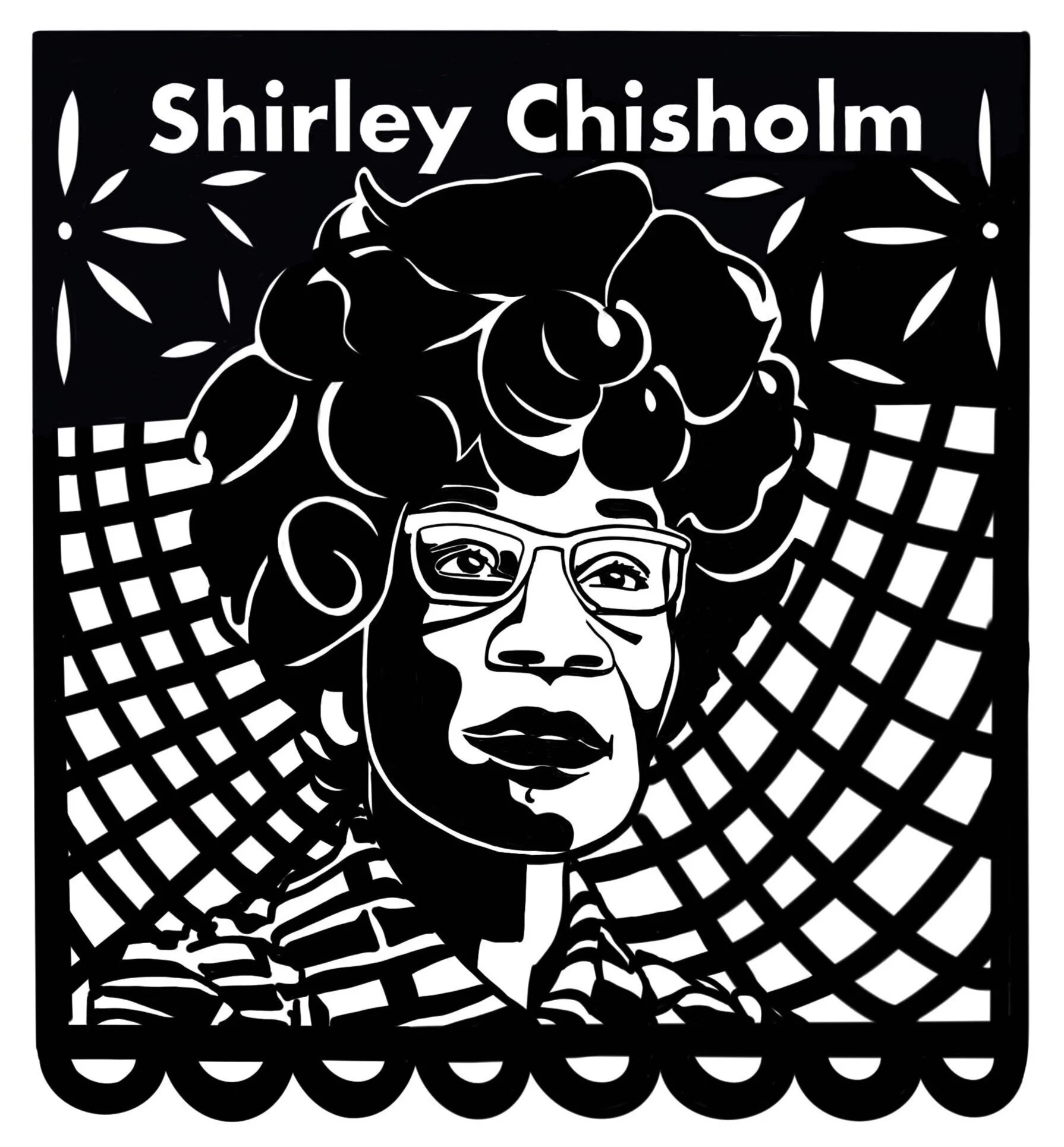Seen and Heard: Shirley Chisholm
Papel picado Shirley Chisholm by Natalie Lomeli
Journaling on Shirley Chisholm’s Desire to Command Audiences
Writer, politician, and educator. First black woman elected to the United States Congress, and the first black woman to run for president.
Thanks to historians and archivists, Shirley's 1972 speech at UCLA is still available to the masses. This speech, along with dozens of others, are floating in digital airwaves right at this moment. I can comfortably listen to Shirley speak from my bedroom. I try to absorb the boldness, the audacious energy Shirley emits while talking. I soak up the spirit that lives within her quiet pauses, those subtle moments that evoked power, too. Shirley's audacity is equally as infectious and inspiring in 2021 as it was in 1972, and her presence represents qualities I so desperately wish to embody.
I'm sure that was Mrs. Chisholm's plan all along. Pull unsuspecting listeners in so that they felt emboldened enough to spread the gospel of social justice and demand that their voices are heard. Audience members were her muses; whether they agreed with her sentiments or not, they inspired Shirley to continue spreading progressive ideas and radical change.
In a political sphere oversaturated with white men, Shirley's presence automatically implied strength. We needed women like Shirley Chisholm back then, and we still need them now. Not to place the responsibility of changing the world entirely on their backs, but to create an ecosystem of people who wish to challenge inequity within the human experience. Shirley admitted that people would often ask her, are you serious? They asked her this as if her desire to be a catalyst for change was a joke. They asked if she was serious, as if her fight for justice qualified her as mentally unstable.
Questioning the sanity of women who dare to do anything outside of patriarchal and racist structures is a trend that hasn't died yet. This form of gaslighting and gatekeeping has a long history and a strong foundation to stand on. Society is very slowly moving toward women's liberation, but this journey is not a straight path. Freedom for all women will appear different for each woman. Achieving autonomy comes after we remove patriarchal and racist concepts and rhetoric from the conversation surrounding liberation.
Five decades have passed since her UCLA speech, and it is still encouraging black women like me to break out of hiding. Mrs. Chisholm used her political career to help destabilize and disrupt ironclad structures that leave no room for progress. I keep thinking of how she spoke; she was simply herself speaking up for what was right. Bold and inspiring, just enough energy to inspire people to join her in destroying the status quo.
Protest Is Accepting Submissions for the Communication Issue
We are perpetual participants of conversation; we use our abilities to share information, for advocacy, for love, for disruption. Communication exists with the premise that our message will reach something or someone else; it's a tool meant to strengthen or disrupt connections.
Protest’s second issue concentrates on communication, expression, and education. We’re looking for written and visual work created by BIWOC to make the Communication Issue whole.
If you have issues with the link, you can send in your submissions by emailing submitpromag@gmail.com.
Other Ways to Help
Make a tax-deductible donation through our fiscal sponsor, Fractured Atlas, a 501(c)(3) organization for artists and arts services. All monetary donations will be applied to the Protest Magazine contributors. We don’t believe in free labor and want to compensate creators for their work.
Share this pdf with artists and writers who might want to submit their work. Spread the word! Kindly keep in mind, prioritize the work from BIWOC since Protest exists to celebrate the voices of marginalized women.
